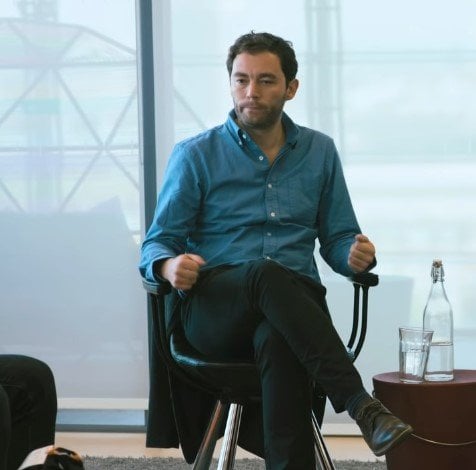What makes people break the mold? What makes innovators master and re-define their trade? What role does eccentricity play? Is eccentricity a factor or an outcome?
Q1 hedge fund letters, conference, scoops etc, Also read Lear Capital: Financial Products You Should Avoid?
Acclaimed Colombian journalist, editor and author Felipe Pombo discusses his book "16 Eccentric Portraits" where he retells his experience of personally attempting to understand iconic masters of their craft beyond appearances, through in depth interviews. Hear what so called ‘eccentrics’ like Tim Burton, Clint Eastwood, Ferran Adria (El Buli Restaurant), Alejandro Gonzalez Inarritu (Oscar-winning director), Gael Garcia (actor), Spencer Tunick (famed photographer) and many more have in common. Hear Felipe speak about what they have in common, what are their motivations, how eccentricity can be a creative force, and finally how those encounters continue to influence his creative process.
Felipe Pombo: "Breaking The Mold: Lessons From Icons, Famous, And Eccentrics"
Transcript
Yes. Well OK started at a very young age I started working up when I was about 20 years old in different magazines and media outlets and I had the chance to do interviews to interview a lot of people and at the beginning I felt that doing an interview was just asking someone questions and getting an answer. But with time and with the experience I started developing a new a new way to interview me way for me at least and that is not just asking questions but looking at people understanding and I think journalism. Classic journalism which is basic news and very like very speed way of seeing things doesn't give you time to really understand people. You know you see interviews every day in newspapers and television. But those are like very fast ways of interviewing. What I what what I wanted to do and what I started doing was taking time to do really really really long interviews and not only as I said asking things but sharing time with this character so I decided to. So I have the chance to meet a lot of creators writers painters photographers chefs architects people from all over the world. And what I wanted to do actually was meeting these eccentric people and by eccentric I mean not only weird people but their eccentric in the fact that they are not that they live like the center of of things and they start thinking differently. Do we need a different approach. What they do for a living. Obviously that the vast array of people that you could have interviewed is quite broad.
How did you how did you go about going from a potential Leath that would've been very exhausted to narrow down that the 16 characters that you. Well I I really don't have like so much the opportunity to choose. Basically I have I was given the task to do it. So I obviously I decided to focus on people as we're speaking about who are really really different and who think differently from others. So I started to travel all over the world when I was like putting all this this profile in my book. I did a quick calculation and I've been doing the two times the world traveling Oh towards the wall and then I started to the common things in these characters. First of all they all wanted to do something that no one had ever done before in their fields and they had to struggle a lot with this because they were outsiders. They were seen as as eccentric as they were doing something so different that maybe they didn't understand them first. But they keep on going keep on going keep on going and they became like were white celebrities. They are all very well known. They're very famous but I'm not centering on the fact that they are just famous. You know I think we live in a world that is obsessed with famous people and we get a lot of information from famous people and we don't even know why they are famous like the guard fashions or the Justin Bieber or people like that. We know the do things but they're famous because they're famous. So I wanted to see what was behind that and then touching the commonality theme.
What can you tell us about did you find anything coming in terms of their background and their stories. You hinted at some struggle some elements in their character. Are they obstinate. Are they optimistic. What can you tell us in terms of background and character that you found common perhaps across. Well certainly they're not very optimistic because I think when you when you're too optimistic you're kind of naive because when you want to create.






